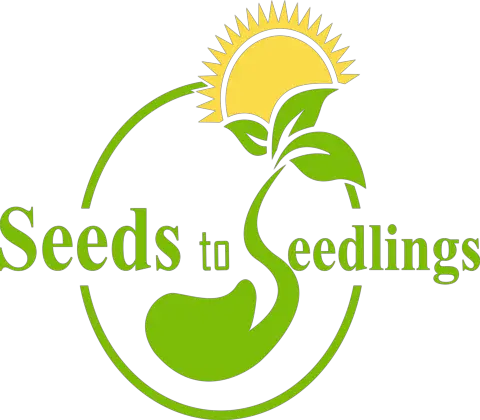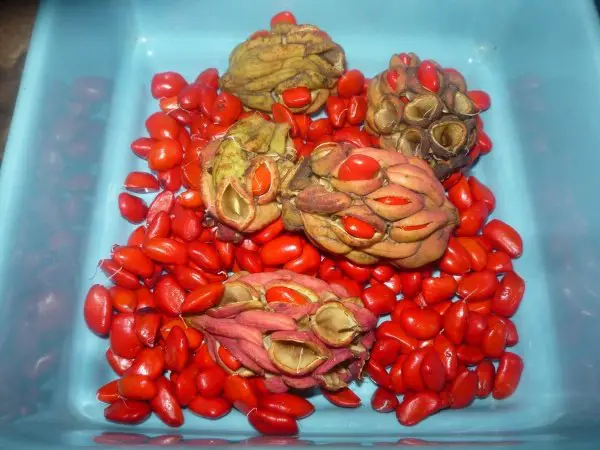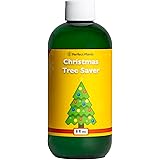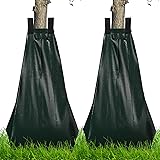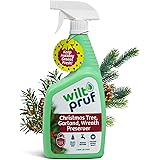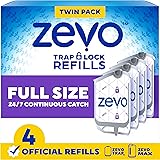Birds are often the subject of wonder and fascination, with their ability to soar through the skies and their diverse diets being the focus of many questions. One such query that arises is, “Do birds eat magnolia seeds?” The answer is yes, birds do enjoy feasting on magnolia seeds, which are packed with essential nutrients. These tiny nourishing packages can provide energy and sustenance for our avian friends.
So, if you have a magnolia tree in your backyard or garden and have been wondering if birds are benefiting from its seeds, the answer is a resounding yes! Let’s delve deeper into this fascinating aspect of bird behavior. But first, let’s explore why this question even arises in the first place.
Do Birds Eat Magnolia Seeds?
Many people enjoy having magnolia trees in their gardens for their beautiful blooms and elegant foliage. While magnolias are known for their showy flowers, have you ever wondered if birds also find them appealing?
Birds are known to eat a wide variety of seeds, but do they eat magnolia seeds? In this article, we will explore the fascinating relationship between birds and magnolia seeds.
The Diet of Birds
Before delving into whether birds eat magnolia seeds, let’s first understand the typical diet of birds. Birds are omnivores, meaning they consume a variety of food sources, including seeds, insects, fruits, and nectar.
Their diet can vary depending on the species, time of year, and availability of food.
Seed Consumption
Seeds form a significant part of many bird species’ diets. Different bird species have specific preferences when it comes to seeds.
Some birds are primarily granivorous, which means they predominantly eat seeds. Others may incorporate seeds into their diet alongside other food sources.
Seed Preferences
Birds typically have preferences for certain types of seeds based on their size, shape, and nutritional value. They have adapted beaks and digestive systems that allow them to crack open shells and extract the nutritious parts inside.
Some birds prefer larger seeds, while others are specialized in feeding on smaller ones. It’s important to note that not all seeds are suitable for bird consumption, as some can be toxic to them.
Read More: About How to Get Big Pothos Leaves
The Relationship Between Birds and Magnolia Seeds
Now, let’s explore the specific relationship between birds and magnolia seeds.
Magnolia trees produce cone-like structures that contain seeds within their protective shells. The seeds are often found in the center of the cone, tightly packed together.
Availability and Accessibility
When it comes to magnolia seeds, accessibility plays a crucial role in determining whether birds consume them. Magnolia cones are typically found at the top of the tree, away from the ground where birds typically forage.
This limited accessibility may reduce the chances of birds actively seeking out magnolia seeds as a primary food source.
Preferences of Bird Species
While some bird species may not show a particular interest in magnolia seeds, others might be more inclined to consume them.
The diet preferences and adaptations of bird species can vary greatly, which means that certain bird species may have a natural inclination towards magnolia seeds.
Exploratory Behavior
Birds are known for their curious and exploratory behavior when it comes to foraging for food. They might try out various food sources, including magnolia seeds, to determine their palatability and nutritional value.
This exploratory behavior can help researchers understand the interplay between birds and magnolia seeds.
Benefits of Birds Eating Magnolia Seeds
While the extent of bird consumption of magnolia seeds may vary, there are several potential benefits associated with birds eating these seeds.
Seed Dispersal
Birds play a vital role in seed dispersal for many plant species. When birds consume magnolia seeds, they can transport them to new locations, aiding in the dispersal and propagation of magnolia trees.
This process is crucial for the survival and genetic diversity of magnolia populations.
Ecological Balance
Birds are an essential component of ecosystems, contributing to the balance and functioning of natural habitats.
If bird species consume a reasonable amount of magnolia seeds, it can help maintain the ecological balance by preventing excessive seed accumulation and allowing for successful germination and growth of new trees.
Food Source
For bird species that do consume magnolia seeds, these seeds can serve as an additional food source, especially during seasons when other food options may be scarce.
Magnolia seeds can provide essential nutrients and energy to birds, supporting their survival and reproductive success.
The consumption of magnolia seeds by birds may vary depending on various factors, including accessibility, preferences of bird species, and exploratory behavior. While not all bird species are likely to eat magnolia seeds, some may find them appealing and include them in their diet. The benefits of birds consuming magnolia seeds include seed dispersal, ecological balance, and an additional food source.
The relationship between birds and magnolia seeds highlights the intricate connections within ecosystems and the role birds play in maintaining biodiversity. So, the next time you admire the magnolia tree in your garden, keep an eye out for any feathered visitors that might be enjoying the seeds as well.
Read More: About How To Get Rid Of Gnats In Indoor Plants
Frequently Asked Questions (FAQs)
Yes, birds do eat magnolia seeds. Magnolia seeds are a valuable food source for many bird species.
Several bird species, including the Northern Cardinal, Blue Jay, and American Robin, are known to consume magnolia seeds.
Birds often find magnolia seeds by foraging on the ground or in trees where the magnolia tree is present. They crack open the seed pods to access the seeds inside.
Yes, birds have specialized digestive systems that allow them to break down and digest the tough outer shell of magnolia seeds.
Yes, magnolia seeds provide birds with a good source of fats, proteins, and essential nutrients, helping them maintain energy and overall health.
No, there are no known risks associated with birds consuming magnolia seeds. However, it’s important to note that moderation is key in a bird’s diet, and they should have access to a varied range of food sources.
Backyard bird feeders can offer a variety of seeds, including magnolia seeds, to attract and support bird populations. However, it’s essential to ensure the seeds are fresh and uncontaminated.
One way to assist birds in accessing magnolia seeds is by planting magnolia trees in bird-friendly areas. This not only provides a natural food source but also offers nesting and shelter opportunities for birds.
Final Thoughts
Birds are often seen foraging for food in trees, but do they eat magnolia seeds? While birds do have a diverse diet that includes insects, berries, and even small animals, magnolia seeds are generally not a preferred food source for them. The tough outer covering of magnolia seeds makes them difficult for birds to crack open, limiting their appeal as a food option.
Instead, birds tend to focus on more easily accessible food sources. Therefore, if you’re looking to attract birds to your garden, offering a variety of other bird-friendly foods would be a better option than relying solely on magnolia seeds.
Auto Amazon Links: No products found.
VEVOR Tree Watering Bags Slow Release, 4 Pack 16 Gallons Tree Watering Ring, Reusable Refillable Tree Irrigation Ring Water Bags, Heavy Duty Watering System for Shrub Tree Root Drip Irrigation
$29.99 (as of February 12, 2026 00:41 GMT +00:00 - More info- Product prices and availability are accurate as of the date/time indicated and are subject to change. Any price and availability information displayed on [relevant Amazon Site(s), as applicable] at the time of purchase will apply to the purchase of this product.
Perfect Plants Christmas Tree Saver 8oz. | Easy Use Xmas Tree Preserver Food | Have Healthy Green Christmas Trees All Holiday Season
$16.99 (as of February 12, 2026 00:41 GMT +00:00 - More info- Product prices and availability are accurate as of the date/time indicated and are subject to change. Any price and availability information displayed on [relevant Amazon Site(s), as applicable] at the time of purchase will apply to the purchase of this product.
2 Pack Tree Watering Bags, 20 Gallon Reusable Heavy Duty Slow Release Water Bags for Trees, Durable PE Tree Drip Irrigation Bags with Heavy Duty Zipper, Deep Root Targeting
$16.99 (as of February 12, 2026 00:41 GMT +00:00 - More info- Product prices and availability are accurate as of the date/time indicated and are subject to change. Any price and availability information displayed on [relevant Amazon Site(s), as applicable] at the time of purchase will apply to the purchase of this product.
Mini Decorative Metal Watering Can, Set of 6, Height 1.97 inch, Cute Metal Jug for Hand Crafts,Garden Theme Parties, Home and Refrigerator Decor
$8.99 (as of February 12, 2026 00:41 GMT +00:00 - More info- Product prices and availability are accurate as of the date/time indicated and are subject to change. Any price and availability information displayed on [relevant Amazon Site(s), as applicable] at the time of purchase will apply to the purchase of this product.
Wilt-Pruf® Christmas Tree/Cutting Preserver Spray |Preserves Christmas Trees, Wreaths, Garlands, Cuttings and Carved Pumpkins | Reduces Needle Drop | Keeps Cut Trees Fresh Longer | Natural (32 oz)
$21.99 (as of February 12, 2026 00:41 GMT +00:00 - More info- Product prices and availability are accurate as of the date/time indicated and are subject to change. Any price and availability information displayed on [relevant Amazon Site(s), as applicable] at the time of purchase will apply to the purchase of this product.
TERRO Ant Killer Bait Stations T300B - Liquid Bait to Eliminate Ants - Bait System - 12 Count Stations for Effective Indoor Ant Control
$11.97 (as of February 12, 2026 22:33 GMT +00:00 - More info- Product prices and availability are accurate as of the date/time indicated and are subject to change. Any price and availability information displayed on [relevant Amazon Site(s), as applicable] at the time of purchase will apply to the purchase of this product.
Wagner's 53002 Farmer's Delight Wild Bird Food with Cherry Flavor, 10-Pound Bag
$12.48 (as of February 12, 2026 22:33 GMT +00:00 - More info- Product prices and availability are accurate as of the date/time indicated and are subject to change. Any price and availability information displayed on [relevant Amazon Site(s), as applicable] at the time of purchase will apply to the purchase of this product.
Zevo Flying Insect Trap Official Refill Cartridges - Fits Both Zevo Trap & MAX Indoor Fly Trap - Authentic Trap+Lock Technology to Catch Gnats, House & Fruit Flies (4 Official Refill Cartridges)
$14.97 (as of February 12, 2026 22:33 GMT +00:00 - More info- Product prices and availability are accurate as of the date/time indicated and are subject to change. Any price and availability information displayed on [relevant Amazon Site(s), as applicable] at the time of purchase will apply to the purchase of this product.
OLANLY Dog Door Mat for Muddy Paws 30x20, Absorbs Moisture and Dirt, Absorbent Non-Slip Washable Doormat, Quick Dry Chenille Mud Mat for Dogs, Entry Indoor Entryway Carpet for Inside Floor, Grey
$9.48 (as of February 12, 2026 22:33 GMT +00:00 - More info- Product prices and availability are accurate as of the date/time indicated and are subject to change. Any price and availability information displayed on [relevant Amazon Site(s), as applicable] at the time of purchase will apply to the purchase of this product.
TempPro TP50 Digital Hygrometer Indoor Thermometer Room Thermometer and Humidity Gauge with Temperature Humidity Monitor(Previously ThermoPro)
$9.99 (as of February 12, 2026 22:33 GMT +00:00 - More info- Product prices and availability are accurate as of the date/time indicated and are subject to change. Any price and availability information displayed on [relevant Amazon Site(s), as applicable] at the time of purchase will apply to the purchase of this product.
